10 Hurricane Katrina Survivors Reveal Storm's Impact on Their Lives & New Orleans 15 Years Later
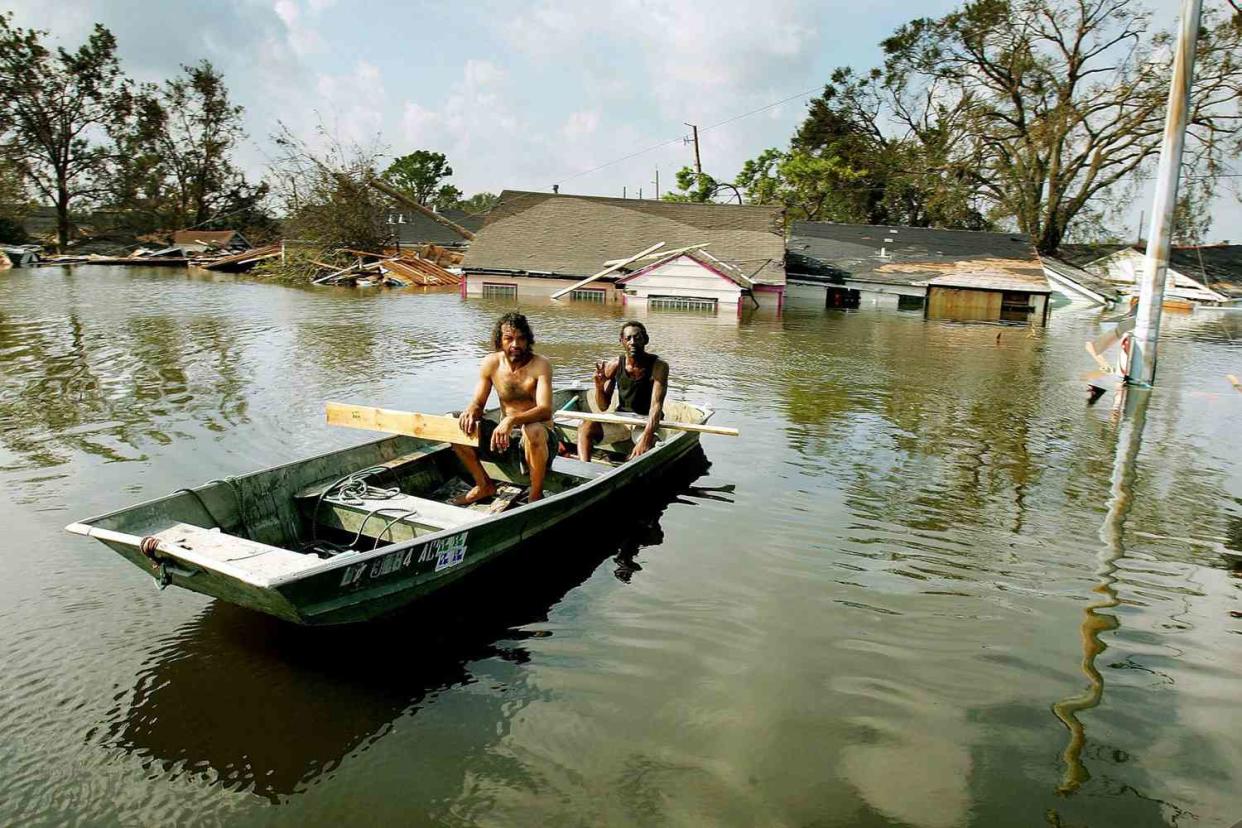
Mario Tama/Getty Hurricane Katrina aftermath
On Monday, Aug. 29, 2005, Hurricane Katrina made its historic landfall on the Gulf Coast, hitting a number of cities along the Louisiana-Mississippi border, with the eye of the Category 5 storm striking the vibrant city of New Orleans. While the massive storm weakened upon making landfall, Katrina engulfed New Orleans, leaving the city submerged in its waters for weeks due to failures in the levee and floodwall systems surrounding the city.
And while most Americans took in the news of the flooded city from their TV screens, residents of the Crescent City were living it — from the roofs of buildings and homes, the overcrowded floors of the Superdome, the makeshift boats floating on the hurricane waters — after evacuating and wondering what had become of their loved ones and homes.
Katrina was more than a natural disaster that claimed over 1,100 lives — it was also a political and social disaster that created even more damage, and in the process, shed light on the race and poverty gap prevalent in New Orleans and the country as a whole. While popular tourism hotspots such as the French Quarter and Garden District have bounced backed, many areas of the city have not yet fully recovered from the extensive damage.
To honor the perspectives of Katrina survivors who have witnessed the aftermath, PEOPLE is sharing some of their stories on the hurricane's 15th anniversary.
Taylor Evans, 26
I was 11 when Katrina hit and completely shattered the life I knew. The crazy thing was, hurricanes were so routine, we thought nothing of it. We knew the drill: some flooding, power outages, move valuable stuff away from windows, sandbags at the front door and then we got four days off of school. You never think the big one is going to happen to you.
Once the storm did hit, the news was littered with images of our neighborhood flooded with six feet of water. The phone systems were down. This was before the age of social media, so I didn't know where my friends were and if they were okay. We didn't even know if we still had a home. The scariest thing was the uncertainty of everything.
Katrina altered my life dramatically. I ended up at a New England boarding school, and my love of TV and film (that I eventually made into a career) stemmed from the fictional worlds I turned to for escapism during that horrific time. I even ended up going to Tulane University for my freshman year of college — a choice I made not because of the school, but because I felt like my journey with New Orleans wasn't finished.
Fifteen years later, visiting the city is so surreal because so much has changed — and at the same time, nothing has. There're still sections of the city that are frozen in time, untouched since the storm's aftermath — including my childhood home in the neighborhood of Gentilly, which was mostly destroyed. The majority of these areas are also predominantly Black. New Orleans' rich culture has everything to do with the people of color who have been there for hundreds of years. Despite everything they've been through, everything we've been through, their resilience will never waver. They are still second-lining in the streets, playing jazz on the corner, making jambalaya in shotgun houses, throwing beads in the trees and treating all tourists with Southern hospitality. That's what New Orleans means to me, and it took almost losing everything to realize that.
RELATED: New Orleans Grads Whose Senior Year Was Disrupted by Hurricane Katrina Comfort Class of 2020
[primary_media_image primary_image="12279190" orientation="default" /]
Clint Smith, 61
In late August 2005, we prepped to evacuate as we had several times before: boarded the windows, took art off the walls and grabbed all of the essential documents. We were evacuation veterans, used to going away for a few days and returning to a New Orleans that had experienced some flash flooding and down branches. When I backed our family Suburban out of the driveway the Saturday morning before the storm was scheduled to hit on Monday, my wife, three kids nor I thought we'd be saying goodbye to the house we'd made our home for the last 15 years.
That week changed our lives forever. The extensive damage to the city was shocking, and the sorrow we felt for what seemed like the stripping of its soul, was devastating. But as much as it felt like we lost so much so suddenly, also immediately apparent was the city's roaring sense of community and resiliency.
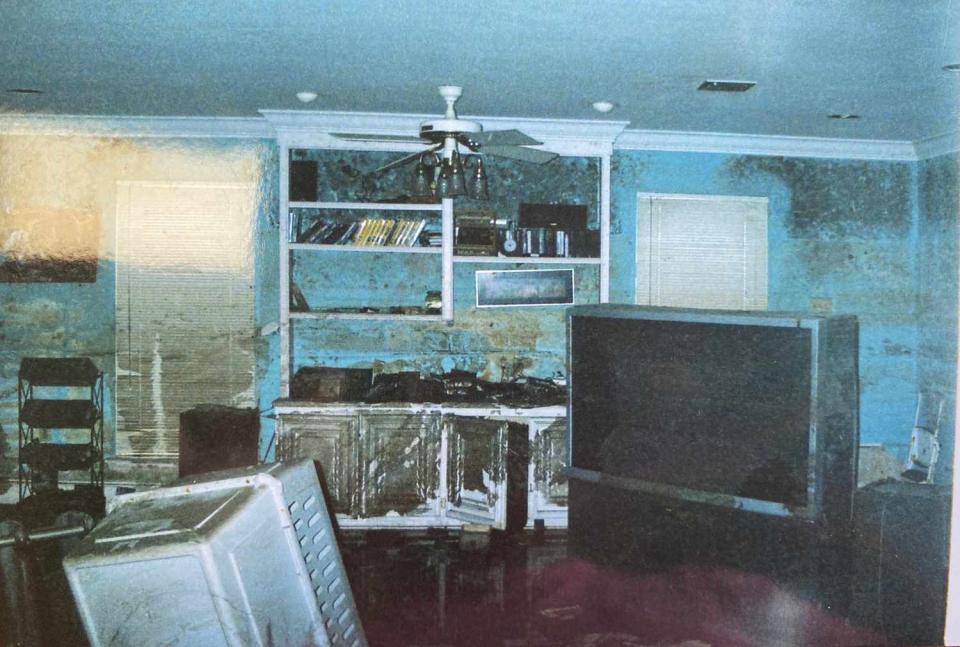
Jesse Smith
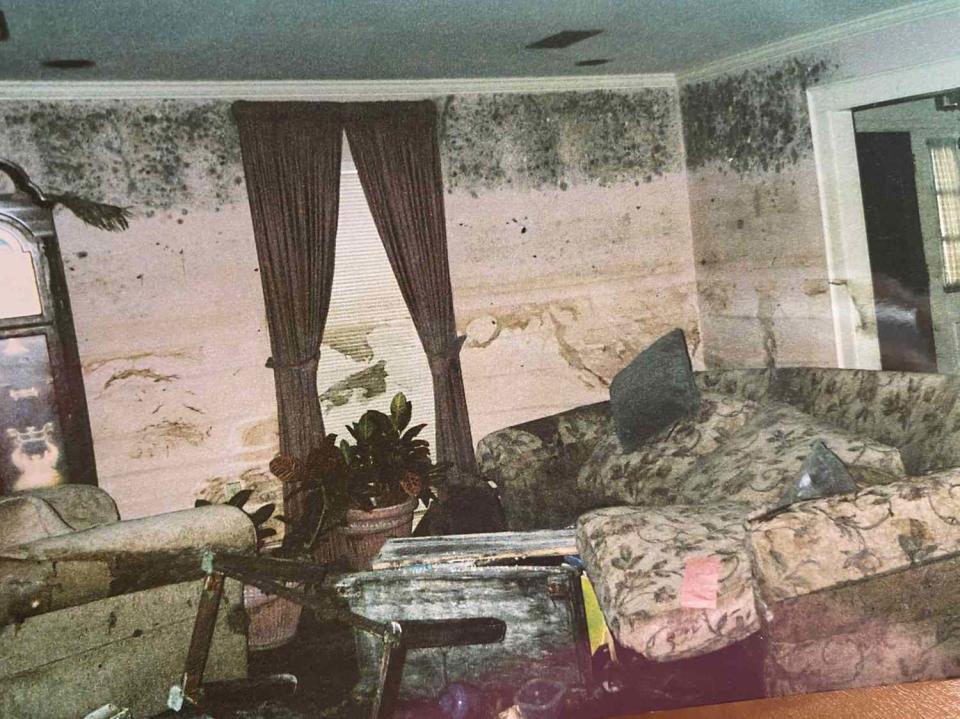
Jesse Smith
We saw people in their most selfless forms, where everyday folks turned into heroes. The love our family felt from our "village" of friends and extended family, near and far, was overwhelming, and our relationships have been forever deepened for it. As a city, we've been united by recovering from the unthinkable, strengthened by our ability to rebuild while holding on to the heart and soul of what makes New Orleans, New Orleans.
My family returned to the city after the storm, and today, I am running for Juvenile Court Judge on the Nov. 3 presidential ballot. I continue to have faith in New Orleans and I look forward to many more years.
David K. Haspel, 71
My father, Robert B. Haspel, M.D., was seriously ill days before Katrina but preferred to ride it out at home, like a lot New Orleans residents used to hurricane season chose to do. We were well prepared. However, late Sunday afternoon — a day before the storm hit — he began internal bleeding and was admitted to Touro Infirmary.
The hospital was equally prepared for the storm. Katrina did not feel like an exceptionally strong storm at the time, originally being a Category 1. Thinking we had dodged another hurricane bullet, we hadn't anticipated the flooding. Although we were lucky that our neighborhood didn't flood, we had other troublesome problems: New Orleans was crumbling into chaos.
Despite this, memories that stand out to me from the difficult time were acts of kindness from the nursing staff and Michelle and Vance Reynoir, a remarkable sibling team whose humanity to a total stranger (myself) enabled a well-formed evacuation plan. Exiting Touro prior to the storm, I asked the nurses what we could do for them. Each wrote a phone number to call to tell their families how much they loved them. I felt guilty leaving because they were so brave.
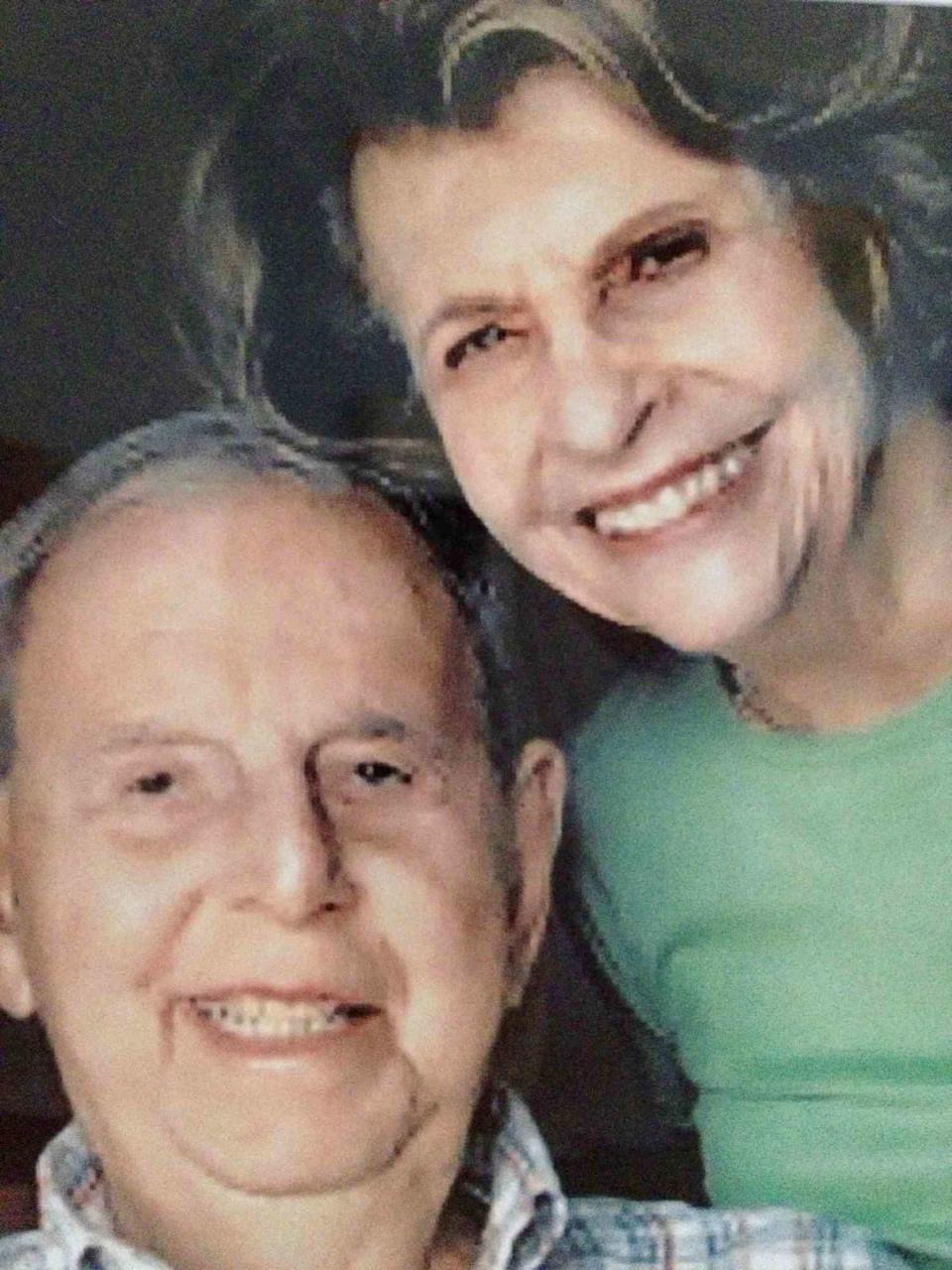
David Haspel Robert and Shirley Haspel
My dad was heavily sedated during this journey. This gave me time to spend with my mom, Shirley, then 82. She was more of a listener than a talker, but during this time, I got to know exactly how thankful she was for her life with dad. That time together was a gift.
I drove my parents to Alexandria, Louisiana, spending the night in the LSUA special needs shelter, where kindness was in full force. The next morning, we flew to Dallas. It wasn't until we saw the news that we realized the depth of destruction to New Orleans. Two days later, my father died from complications from surgery. He had a peaceful death surrounded by family.
Nearly 15 years later, on Aug. 9, 2020, my mother died from COVID-19 in Dallas. She was not surrounded by family. Now, our family has two outlandish deaths, each impossible to reconcile.
RELATED VIDEO: Hurricane Laura Makes Landfall in U.S. as a Category 4 Storm
Melanie Potts, 29
Perhaps the most principle thing we as people all have in common is an idea of home. Regardless of the days' perils, home is always the salvation — the solace. After Katrina, my family of six suddenly could not return to that place we called home for quite some time, if we even got to at all.
We didn't believe this would happen. Being from New Orleans and used to what hurricane season brings, we had evacuated so many times before just to come back home to very little damage. So many of us go through life witnessing natural disasters through the lenses of media, but so seldom do you ever imagine that it'll be your experience. Your nightmare.
The sadness was overwhelming. I didn't know if it would ever return to be the same New Orleans home I left months before. Flash forward 15 years, today, learning that New Orleans was a hotspot for coronavirus hurt in a deep way because it felt all too soon for the city to again be at the center of a major disaster. I'm hopeful, though, because following Katrina I witnessed the strength of New Orleanians and their ability to rebuild, bounce back and not let the city lose its unique culture and spirited character.
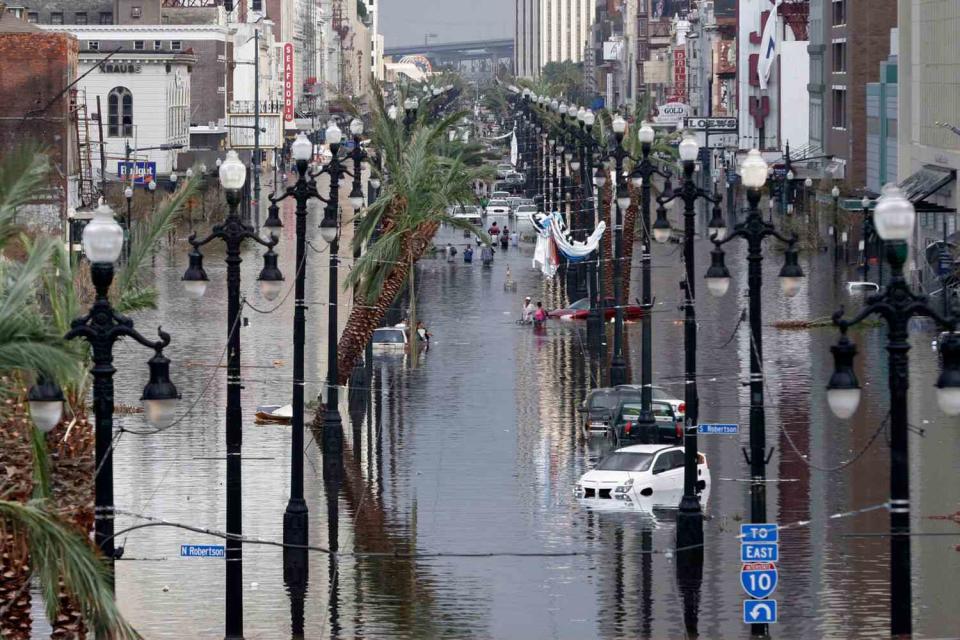
Chris Graythen/Getty Hurricane Katrina aftermath
Conlan Rome, 26
Hurricane Katrina was the first time I experienced a real loss and uncertainty. In the days leading up to the storm, I did not truly comprehend what was happening around me — I was only 11 at the time.
My family's evacuation plans became a reality just one day before Katrina hit New Orleans and we evacuated to Charlottesville, Virginia, where we had family. I vividly remember watching the devastation in real time on TV, paying close attention to my mom's sadness and fear.
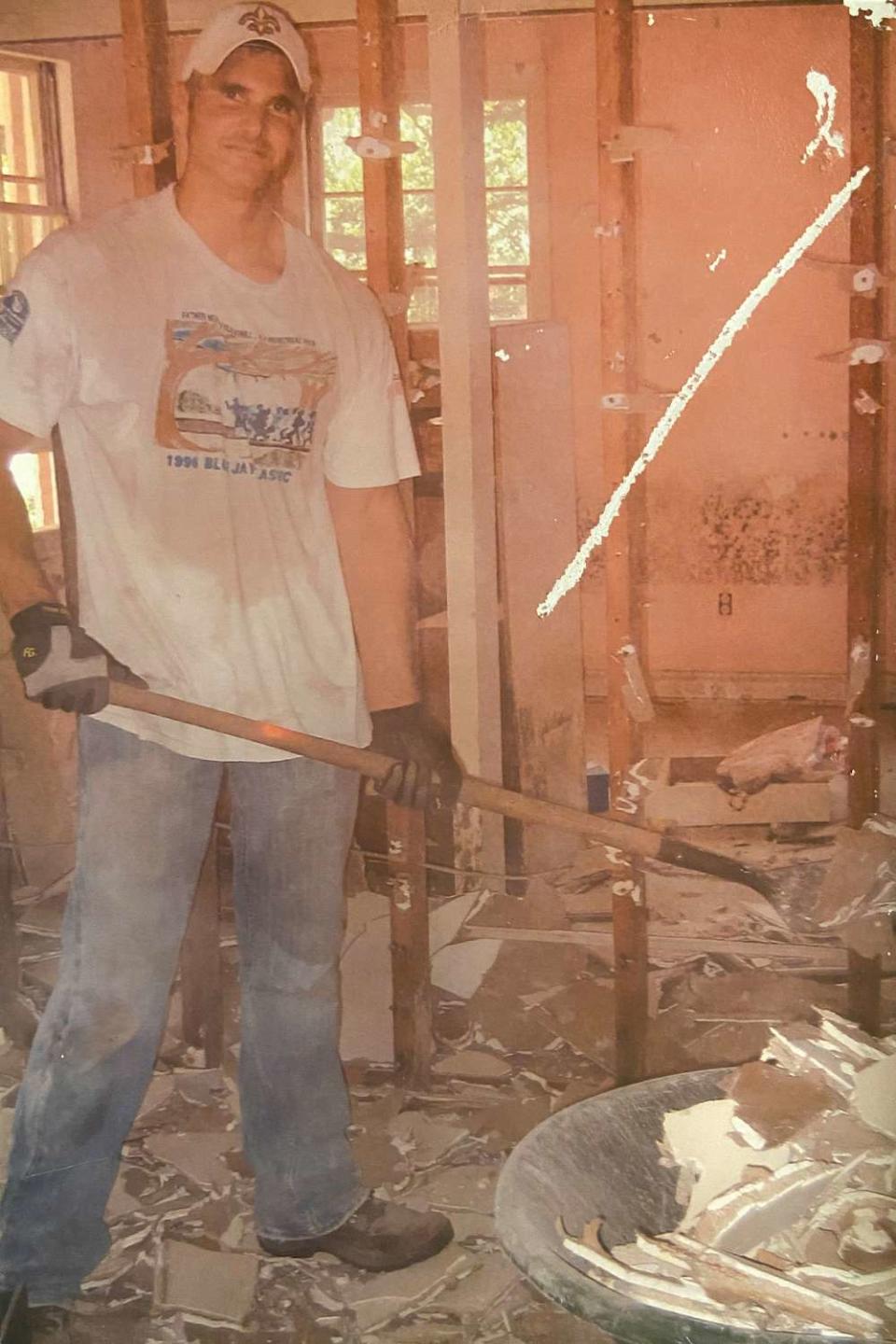
courtesy Conlan Rome Conlan Rome's dad Stuart Rome cleaning out their damaged home
I had so many questions that just couldn't be answered. When would I see my friends again? Was our home okay? It took us about a week after the hurricane hit to hear from a neighbor that our house had completely flooded — that meant we had nothing to return to. My parents then enrolled my siblings and I in new schools, and we lived in Charlottesville for 10 months. It was then that my parents made the decision to move back to New Orleans to rebuild our lives.
I am now 26 and still living in New Orleans. Hurricane Katrina taught me the power of resilience, patience and trust. Without Hurricane Katrina, I would not be the woman I am today.
Kalan Minnard, 25
In regards to what stays with me from Katrina, the honest answer is everything. I was just having a conversation with my family about Katrina, as we do around this time.
We evacuated to Mobile, Alabama at first and then Lafayette, Louisiana from August of that year to late October. My father, a surgeon, had to stay at the hospital in the city during the storm, and that was a traumatic experience for him. However, it was also a traumatic experience for our family. I remember hearing on the news that the "whole city was underwater." I was 11, the eldest of my siblings, and it was hard and terrifying news for me to process. Still, we got through it. Our house had roof damage and minimal flooding.
My parents decided to switch schools for all of us during Katrina, which altered our paths as students. The long-term impact was more emotional than anything. It's something that never goes away. You learn to appreciate everything and everyone way more — because it can be lost in a moment's notice.
The trauma, the fear and the anxiety that builds up every time a big storm starts to form in the Gulf affect everyone's family differently, but it undoubtedly left an effect on most if not all families in and around the greater New Orleans area. It was such a life-changing and monumental event that every year, when it comes around to the anniversary, you allow yourself to get sad for a brief moment — but just a brief moment because the consensus feeling in New Orleans is that we've moved past Katrina. What doesn't kill you can only make you stronger, and that's what New Orleans is, a strong and resilient city.
Carol Blackwell, 61
Katrina was originally headed to Miami, Florida, resulting in the cancellation of my birthday weekend trip there. The weekend was also the 13th anniversary of Hurricane Andrew, which, I experienced in Miami and fortunately survived. In 2005, I was finally coming out of a cloud of unsurmountable grief from the loss of my beautiful brother and sister as well as a divorce. After last-minute birthday celebrations in New Orleans with friends, little did I know that overnight, Katrina decided to change course and head to New Orleans.
While sleeping in late Saturday morning, I was awakened by my father calling from North Carolina. I thought he was calling to wish me a happy birthday, but he wanted to know if I had left New Orleans yet. Before I could finish telling him why my trip to Miami was canceled, he shouted that Katrina is now headed to New Orleans. I turned on the TV and couldn't believe what I was hearing and seeing. Katrina was going to make a direct hit on the city. I had recently watched the National Geographic special regarding the repercussions of a major hurricane's impact on New Orleans, so I was terrified. In a panic, my daughter and I threw everything we could into my car and started a long, frightening evacuation to Alexandria, Louisiana, to shelter at my sister in-law's house.
The rest is history. Fifteen years later, my daughter, Michael Vivienne (7 years old at the time), and I have survived the trauma of being exiled by Katrina, the devastation to the region and the lives of many. We lost pretty much everything we owned and life as we knew it, including the pride of working and living at Dillard University, a New Orleans-based HBCU, and my daughter's beloved school, Hynes Elementary. We have never returned and have dealt with many more painful curveballs, but we still have our lives, great memories of the culturally rich experiences in the beautiful city of New Orleans; our dear friends, family and many more blessings. We are looking forward to visiting again as soon as the COVID-19 pandemic allows. In the words of Destiny's Child, "I'm a survivor, I'm not gon' give up…."
Kerstin Augillard, 25
I can't believe it's been 15 years since Hurricane Katrina ripped through the city of New Orleans, leaving a wake of destruction behind. I was only 10 years old when my entire life was uprooted. I wasn't really aware of what was going on at the time. I just thought I was on a long vacation with my cousins and family friends who all decided to evacuate together. Our house was one of many that ended up with lots of flood damage. We got over 4 inches of rain inside our house and we were forced to renovate, which kept us displaced for an entire year.
I had to move to a new city, go to a new school and make new friends. I was so ready to get back home to my friends, my school and my house.
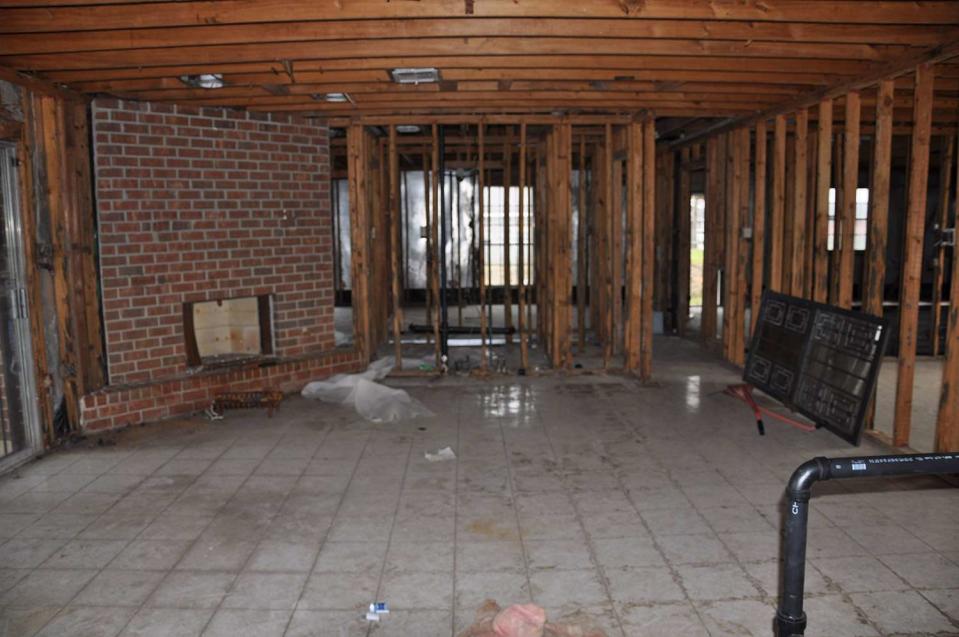
courtesy Kerstin Augillard Kerstin Augillard's home after Hurricane Katrina
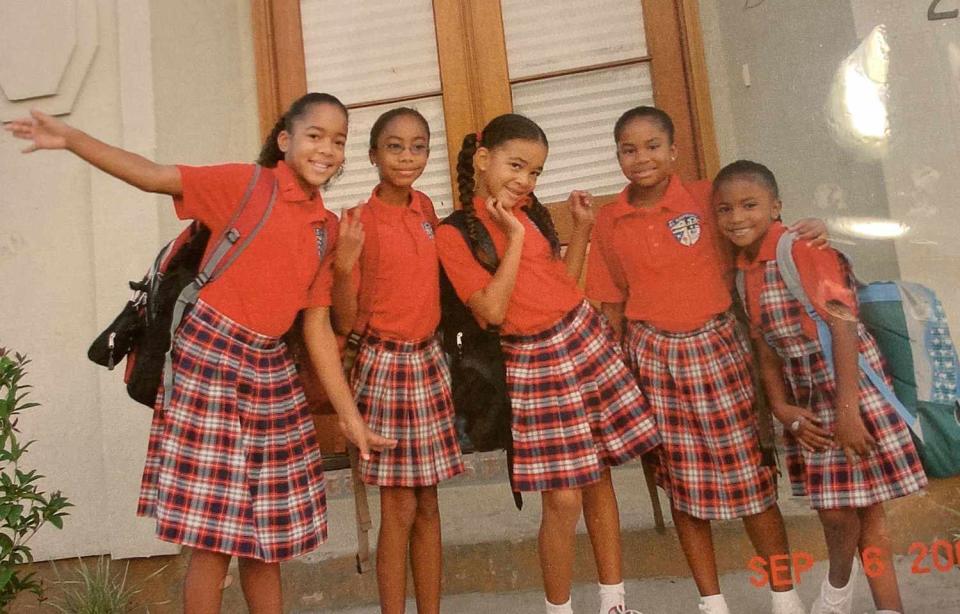
courtesy Kerstin Augillard Kerstin Augillard and her sisters and cousins on their first day at their new school
The fact that I was so young when Hurricane Katrina hit, I didn't think that the storm had any effect on me personally, until today — as I'm sitting in the exact same house from 15 years ago as two more storms prepare to hit [the South] on the 15-year anniversary of Katrina.
I realized like so many others that the threat of a hurricane will always put me a little on edge from the fear that another Hurricane will do the exact same amount of damage if not more. It took our city so long to recover from all the damage; I don't know if we could come back from another hit to that magnitude.
Terri Jackson, 60
Katrina really helped me grow spiritually.
I was working in customer service for United Airlines at the Louis Armstrong National Airport at the time. At the very last minute I realized how serious it was. I never got really nervous about it — I was just trying to understand that this wasn't something I could control. When it happened, it taught me to be strong and to trust in God.
So when I was working, I was trying to get people out of the city, to a safer place, and I had to be strong. I could feel the fear and anxiety as I checked people into their flights, not knowing if they would ever return. I remember saying, "God I need you." After work, I thought about myself and my own family and knew I had to start thinking about my own evacuation plan, but it was too late. I had to evacuate to the Superdome.
When I got to the Superdome, with all of the people, that's when things got worse. They asked everyone to stay with your family and they had busses leaving for different states. That's how serious it was.
I went to Dallas, Texas. Then when I got to Dallas, my job called after a month, and asked if I wanted to work from there. I said yes and I went to work, but it was just so up in the air. You didn't know what to do. I just knew I couldn't go back home. There was no next step. I had to start over. I stayed in Dallas for three years before returning to New Orleans.
Years later, those memories and that feeling of fear stays with me. Every year around this time, during hurricane season, anxiety sets in. But, you have to pray.
Still, this is my home. I always will love my city. I know that I will be here for the rest of my life.
Brandon Labat, 25
I was 10 years old when Hurricane Katrina made landfall in New Orleans. A couple of days before the storm, my parents, grandmother, two siblings and I all piled into the family Suburban and embarked on a journey to Houston, Texas that would change our lives forever. When I left my home, in the Kenilworth neighborhood of New Orleans East, it was beautifully decorated and filled with precious memories from my childhood. It was everything I had ever known, and it was all taken away from me on Aug. 29, 2005.
I can so clearly remember returning to my house months after the storm ravaged the city and seeing nothing but gutted rooms with no walls and water marks so high that I couldn't even jump up to touch it. There was nothing but wood, wires and dust.
The trauma of coming back to New Orleans and seeing just how decimated and desolate my city had become is something that I will never get over. To this day, New Orleans East is still suffering the after-effects of the storm. Still today, there are countless abandoned buildings and homes due to the city's decisions to not reinvest in the area. Passing by these houses and buildings everyday make it impossible to forget what I and many others went through. Hurricane season is a time of the year that makes me reminisce on the toughest time of my life, and it comes with an unavoidable fear that history could repeat itself.

